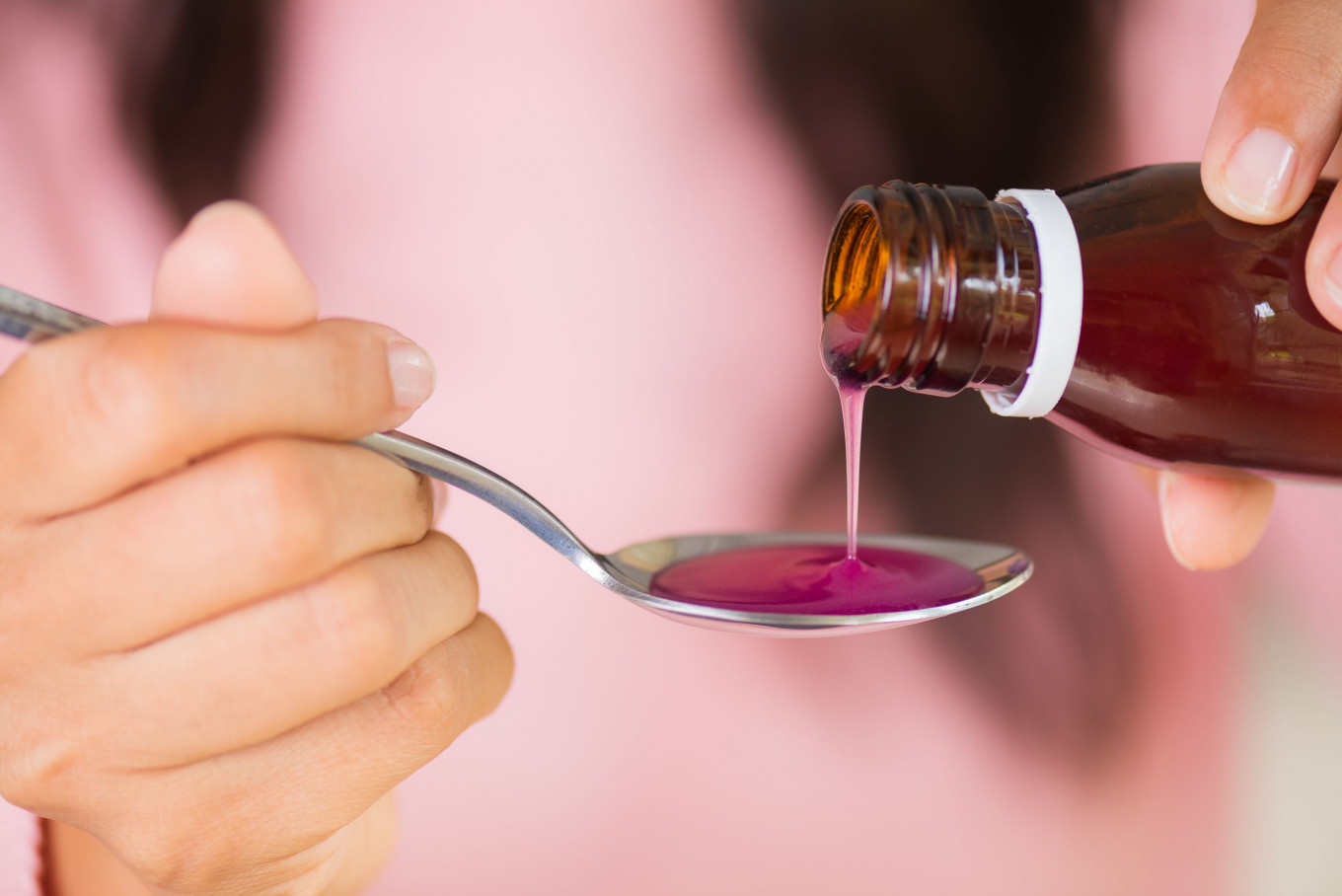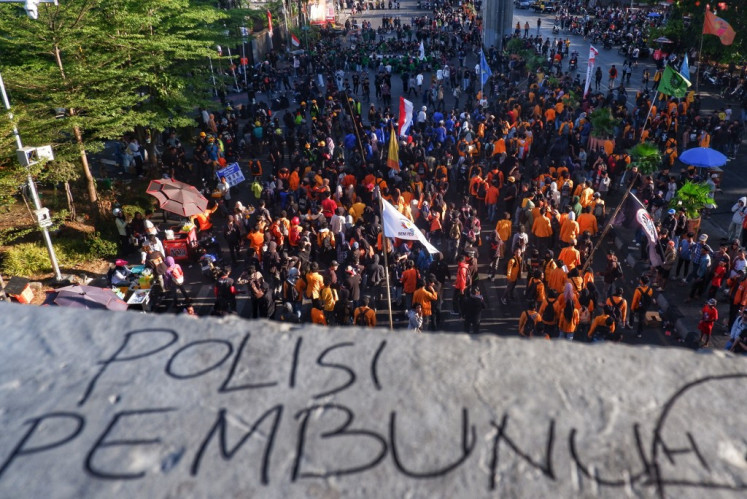Popular Reads
Top Results
Can't find what you're looking for?
View all search resultsPopular Reads
Top Results
Can't find what you're looking for?
View all search resultsDeadly Indonesian cough syrup was almost pure toxin, court papers show
The accusations against drugmaker Afi Farma were made in a court in Kediri, in East Java, where the company is based, and Reuters is the first to report the charge that it used highly toxic ingredients.
Change text size
Gift Premium Articles
to Anyone
A
drugmaker whose cough syrup is among products linked to the deaths of more than 200 children last year used ingredients with toxin concentrations of up to 99 percent in 70 batches of medicine, prosecutors said in a court filing.
The accusations against drugmaker Afi Farma were made in a court in Kediri, in East Java, where the company is based, and Reuters is the first to report the charge that it used highly toxic ingredients.
The criminal case comes as efforts grow worldwide to tighten oversight of drug supply chains after a wave of poisonings linked to contaminated cough syrups that killed dozens more children in countries such as Gambia and Uzbekistan.
Two batches of propylene glycol, a key base for syrupy medicines that Afi Farma received from October 2021 to February 2022 and used in its cough medicine, contained instead as much as 96 percent to 99 percent of a toxic substance, ethylene glycol (EG), a charge sheet in the case showed, in an undated court filing.
When asked who had carried out the testing and how, prosecutor Ikhsan Nasrulloh told Reuters it was done by police last year.
A lawyer for Afi Farma, Reza Wendra Prayogo, told Reuters no accusation of intentional poisoning had been proved against the company, adding that Indonesia's drug regulator, BPOM, did not require drugmakers to do a rigorous testing of ingredients.
He said a 2018 BPOM regulation allowed drugmakers to use tests done by raw material suppliers, requiring them only to run "identification tests" that do not stipulate toxicity testing.
BPOM did not immediately respond to a request for comment.
Afi Farma is one of four companies police have charged in an investigation into the supply of tainted cough syrups, with a court case set to be heard on Oct 18.
The World Health Organization (WHO) says the safe limit for the known toxins EG and diethylene glycol (DEG) is no more than 0.10 percent, based on global standards.
The health ministry also adopted that limit in its 2020 guidelines on drug standards.
EG is employed in making antifreeze and de-icing solutions for cars, among other uses. If swallowed, it may cause acute kidney injury.
Both EG and DEG can be substituted for propylene glycol by unscrupulous producers as they cost less than half the price, several drug experts told Reuters.
Afi Farma's licence to make drugs was revoked late last year and its products taken off the shelves for violating rules on manufacturing.
Four company officials, including the chief executive and the quality control manager, have been arrested and charged with negligence for "consciously" not testing the ingredients, despite having the means and responsibility to do so, the charge sheet shows.
Instead they relied on certificates provided by its supplier regarding product quality and safety. Now prosecutors are seeking jail terms of up to nine years for the officials, according to the charge sheet.
Afi Farma denied the accusation through its lawyer.
Domestic drug regulator BPOM has previously said several parties in the drug supply chain had exploited a gap in the safety rules and drugmakers did not run sufficient checks on raw ingredients used.
The contaminations have sparked criminal investigations, lawsuits and a surge in regulatory scrutiny worldwide.
Last month Reuters reported that some Indian drugmakers involved could not prove they had bought pharmaceutical grade ingredients or tested their medicines for the toxins.











